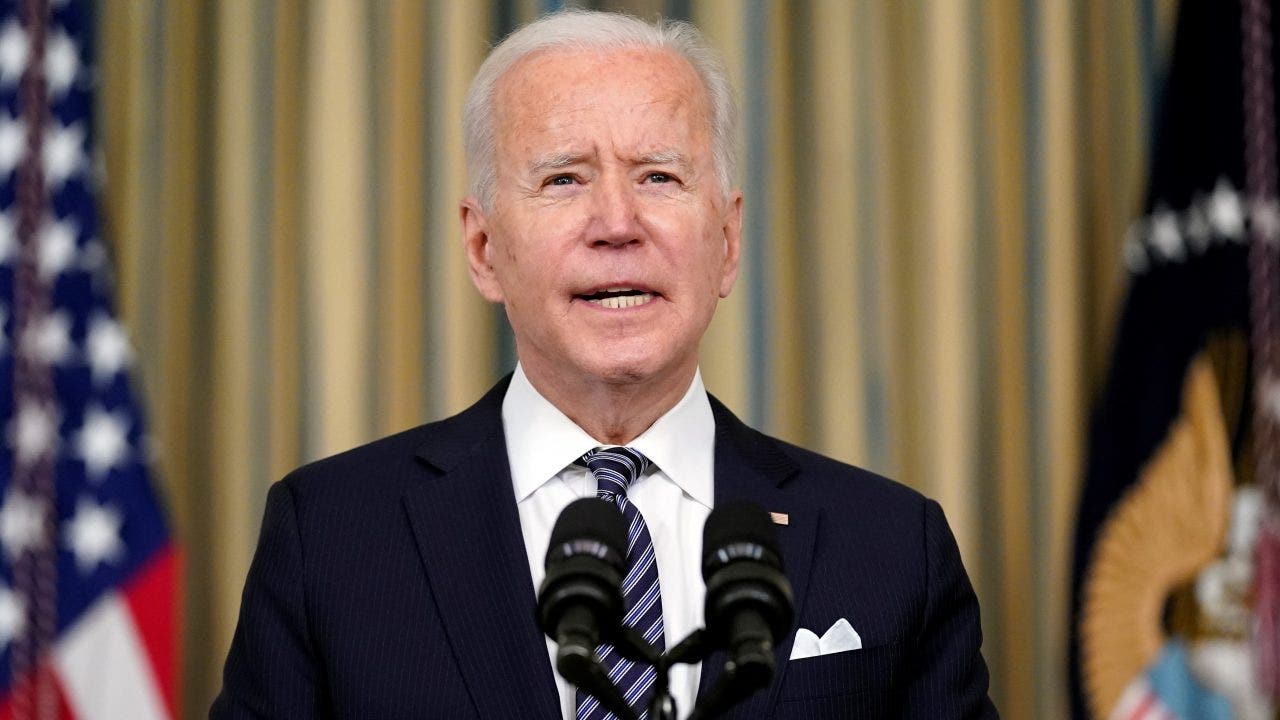WASHINGTON — Early in her time period as chair of the Federal Commerce Fee, Lina Khan stated she would scale back the ability of the largest tech corporations in a radical new manner.
“We attempt to be forward-looking, anticipate issues and act shortly,” Ms Khan stated in an interview final month. She promised to concentrate on “next-gen applied sciences,” not simply areas the place tech giants had been already nicely established.
This week, Ms Khan took her first step in the direction of stopping the tech monopolies of the long run when she filed a lawsuit to dam a small acquisition by Meta, the corporate previously often known as Fb, of the start- health up in digital actuality Inside. The deal was essential for Meta’s growth of the so-called Metaverse, which is nascent know-how and much from mainstream.
In doing so, Ms. Khan has upended many years of antitrust requirements, probably triggering a sea change in how Washington enforces competitors in American companies. On the coronary heart of the FTC lawsuit is the concept regulators can implement antitrust legislation with out ready for a market to mature to the purpose the place it is clear which corporations maintain probably the most energy. The FTC stated such early motion was warranted as a result of Meta’s deal would probably eradicate competitors within the younger VR market.
Because the late Nineteen Seventies, most federal merger challenges have concerned giant, well-established markets and sought to stop already obvious monopolies. Regulators have largely accredited purchases of start-ups by tech giants, resembling Google’s 2006 deal to purchase YouTube and Fb’s 2012 acquisition of Instagram, as a result of these markets had been nonetheless rising.
Because of this, Ms. Khan faces a tough climb. Regulators have been reluctant to attempt to cease company mergers primarily based on the idea that competitors and customers shall be harmed sooner or later. The federal authorities has misplaced a minimum of two instances which have used this technique previously decade, together with an try to dam a $1.9 billion merger in 2015 between X-ray sterilization suppliers that, in accordance with the FTC, would hurt future competitors in regional markets.
The FTC’s lawsuit in opposition to Meta within the nascent digital actuality market is a “intentionally experimental case that seeks to stretch the boundaries of merger enforcement,” stated William Kovacic, the company’s former president. “Such instances are actually tougher to win.”
The FTC’s motion instantly triggered a ruckus in antitrust circles and all through the tech business. Silicon Valley tech executives have stated blocking a deal in an embryonic tech discipline might stifle innovation and stop technologists from making daring leaps into new areas.
“Regulators predicting future markets is a precedent and a really, very harmful place,” stated Aaron Levie, chief govt of cloud storage firm Field. He warned that enterprise capitalists and entrepreneurs would grow to be reluctant to enter new markets if regulators lower off the flexibility of corporations like Meta to purchase start-ups.
Adam Kovacevich, chairman of the Chamber of Progress commerce group, which represents Meta, Amazon and Alphabet, additionally stated the lawsuit would have a chilling impact on innovation.
Study extra about Fb and Meta
“That is such an excessive and unfounded response to a small deal that many tech business leaders are already fearful about what an FTC victory would imply for start-ups,” he stated. he declares.
For Ms Khan, successful the case could also be much less of a precedence than exhibiting that it’s attainable to file a case in opposition to a tech deal whereas it’s nonetheless early days. She stated regulators have been too cautious previously to intervene in mergers for worry of injuring innovation, permitting a wave of offers between tech giants and start-ups that finally cemented their dominance.
“What we will see is that inaction after inaction after inaction can have vital prices,” she stated in an interview with The New York Occasions and CNBC in January. “And that is what we’re actually attempting to reverse.”
Ms. Khan declined interview requests for this text, and the FTC declined to touch upon Thursday.
Meta stated the FTC was misapplying antitrust legislation. The lawsuit focuses on how the merger with Inside would take away competitors, however Meta stated the company was unaware of the massive variety of corporations that additionally had well being and health apps.
“The FTC has no reply to probably the most basic query – how would possibly Meta’s acquisition of a single health app in a dynamic house with many present and future gamers hurt competitors?” Nikhil Shanbhag, vp and affiliate basic counsel at Meta, wrote in a weblog put up.
The corporate added that it has not determined whether or not to contest the lawsuit, which was filed Wednesday within the U.S. District Court docket for the Northern District of California.
The FTC has accused Meta of constructing a digital actuality “empire” beginning in 2014 with its buy of Oculus, the maker of the Quest digital actuality headset. Since then, Meta has acquired a dozen makers of digital actuality apps, such because the maker of a Viking preventing sport, Asgard’s Wrath, and several other first-person shooters and sports activities video games.
By shopping for Inside and its digital actuality health app Supernatural, the FTC stated Meta wouldn’t create its personal app to compete and would scare off potential rivals from attempting to create different apps. It could hamper competitors and customers, the company stated.
“This acquisition presents an affordable probability of eliminating present and future competitors,” in accordance with the lawsuit. “And Meta can be one step nearer to its final aim of proudly owning your complete ‘Metaverse’.”
Rebecca Haw Allensworth, a professor of antitrust legislation at Vanderbilt College, stated the FTC’s arguments would come underneath scrutiny as a result of Meta and Inside didn’t compete with one another and since the digital actuality market was nascent.
“The way in which the evaluation of mergers has stood for a minimum of 40 years is in regards to the type of direct competitors that this merger takes out of the image,” she stated.
It’ll now be as much as the company to persuade a choose that its predictions in regards to the Metaverse and the acquisition of Meta would hurt competitors.
“The onus is on the FTC to point out, amongst different issues, an affordable probability that Meta would have entered the VR health app market, absent its acquisition of Inside,” stated Diana Moss, president of the American Antitrust Institute.
If the courtroom dismisses the case, Ms Khan might have set a precedent that might make it tougher to prosecute nascent competitors instances, antitrust specialists have warned. This might then encourage tech giants to forge their manner into new enterprise areas.
“It is a precedent system that goes each methods – whether or not you win or lose – and sends a sign to the market,” Ms Allensworth stated.
The FTC is reviewing different tech offers, together with Microsoft’s $70 billion acquisition of gaming firm Activision and Amazon’s $3.9 billion merger with One Medical, a nationwide healthcare clinic chain primaries. Moreover, the company investigated Amazon over allegations of monopoly abuse in its third-party vendor market.
Ms. Khan seems to be set for lengthy authorized battles with the tech giants, even when the instances find yourself not going the FTC’s manner.
In her earlier interview with The Occasions and CNBC, she stated, “Although it isn’t a slam dunk affair, although there is a danger that you simply would possibly lose, there could also be d ‘big advantages to taking that danger.’
#FTC #chairman #upends #antitrust #requirements #metalawsuit



